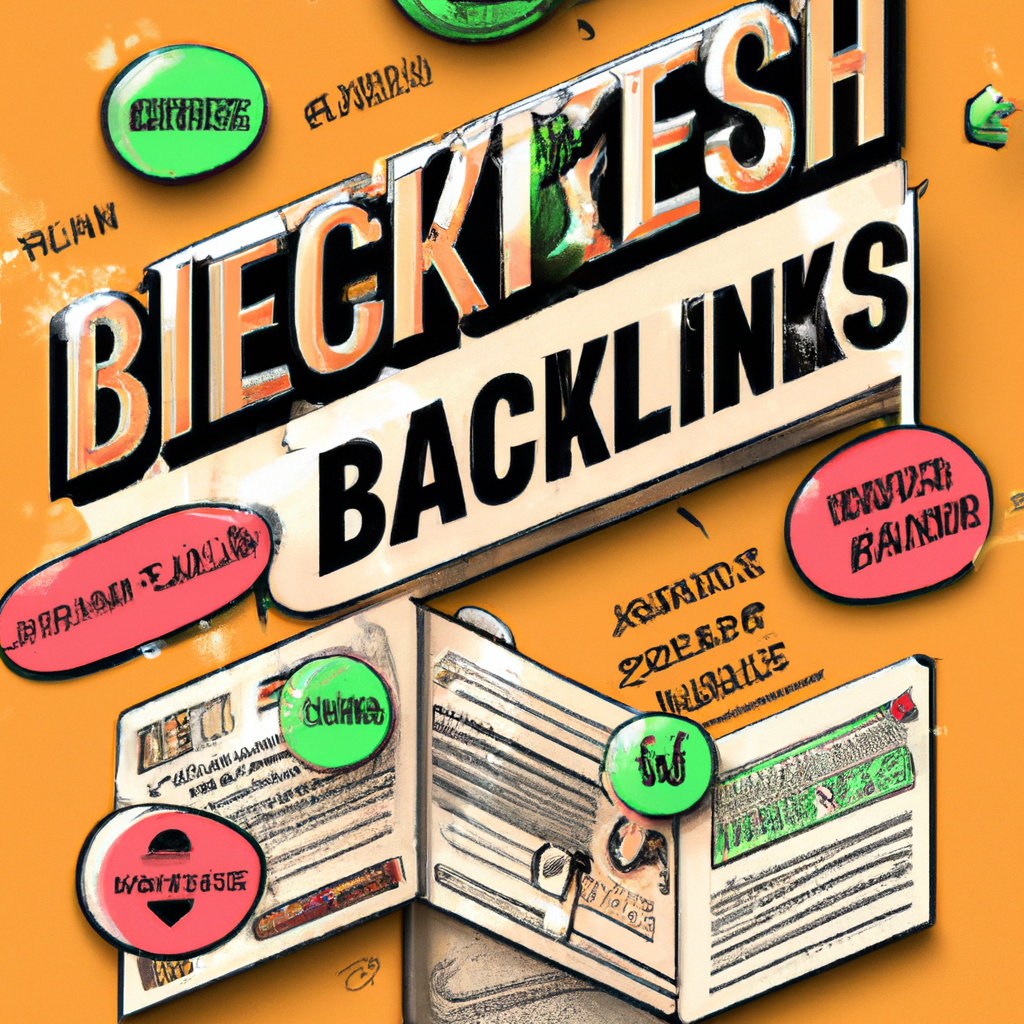SEO vs PPC
Key Takeaway:
- Understanding the difference between SEO and PPC is essential for determining which strategy will work best for your business. SEO focuses on optimizing your website to increase organic traffic and improve search rankings, while PPC involves paying for ads to appear at the top of search engine results pages.
- Advantages of SEO include improved visibility and search rankings, as well as the lack of cost for appearing in organic search results. To improve SEO, businesses should focus on keyword research, on-page and off-page optimization, and creating quality content.
- Advantages of PPC include immediate results and prominence on search engine results pages. To create an effective PPC campaign, businesses should focus on choosing the right keywords, monitoring competitors’ bidding strategies, and taking advantage of the different areas of search engine results pages.
Introduction
Keywords are the lifeblood of successful online marketing, and two of the most popular methods for boosting a website’s search engine ranking are search engine optimization (SEO) and pay-per-click (PPC) advertising. In this section, we’ll explore the key differences between these tactics, and the advantages and pitfalls of each. So whether you’re looking to build your brand’s online presence or increase revenue from your website, understanding the pros and cons of SEO and PPC is essential to making informed decisions about your marketing strategy.
Keywords: SEO vs PPC
Organic SEO and PPC campaigns are two important methods for attracting online traffic. SEO is the long-term approach, while PPC guarantees immediate prominence on SERPs. Keyword research is essential when deciding between SEO and PPC. On-page SEO focuses on content creation while off-page SEO focuses on technical elements such as site structure and quality backlinks.
SEO boosts visibility and increases visitors and revenue without cost. It involves keyword research, creating content with relevant keywords, and technical SEO. Pros and cons of SEO vs PPC can guide budget allocation based on industry stats or examples.
PPC quickly improves website traffic with immediate results. Businesses should consider goals, budget, and target audience before finalizing either strategy. Ignoring SEO or PPC when implementing online strategies puts businesses at risk for losing leads. A lack of optimization will decrease rank position over time, resulting in lost potential revenue.
Understanding SEO and PPC
When it comes to driving traffic to your website, understanding the differences between SEO and PPC is crucial. In this section, we’ll take a deep dive into the world of SEO and PPC and what they each bring to the table. We’ll also go over some important sub-sections along the way, such as organic search, ads, recommended reading for SEO, and paid search, just to name a few. So, let’s get started and find out how these two methods can help your website get noticed in the search landscape!
Keywords: organic search, ads, recommended reading SEO, paid search, search engine results page, SEO takes time, make sure, SEO search engine, search engine results, keyword research, results, SEO search, SEO, PPC campaign, engine results page, search engine, recommended reading, search terms, search landscape, simple questions ask, SEO SEO, site, Google, search engine optimization, engine optimization practice, beginner guide, improve site, SEO search engine optimization, PPC ads, SEO PPC decision, SEO strategy, keywords, SEO PPC, search engines, keywords competitors bidding, search results, five simple questions, technical SEO, people searching, optimization practice, engine optimization, improve, search, search engines find crawl, organic, PPC, five simple questions ask
Organic search and paid ads on SERPs can reap amazing results. But, it’s essential to understand the difference between SEO and PPC. SEO takes time to boost visibility and search rankings, whereas PPC provides swift prominence. To decide where to focus efforts, ask 5 simple questions related to keyword research, on-page and off-page SEO, technical SEO, and different areas of SERPs. Evaluate pros and cons, taking into account budget, goals, and target audience. This will help businesses make an informed decision on whether to prioritize SEO or PPC.
Beginners can start by reading beginner’s guides to enhance their search rankings with Google. Keyword research is the key to creating content that attracts people searching online. PPC campaigns use keywords that competitors are bidding on to appear in relevant search results with ads. Your decision-making process should follow these steps:
- Optimize your site for the right keywords
- Analyze competitors’ bidding strategies (for PPC)
- Pick target areas on SERPs strategically while keeping an eye out for organic traffic sources
- Finally, focus on optimizing conversions at every stage of the customer journey.
Technical factors such as how search engines find and crawl your website can shape a business’s SEM optimization strategy. This should be considered alongside unique content created through intensive keyword research when deciding which method will yield better returns or achieve goals faster with available budget.
Reap the unbeatable advantage of SEO and boost visibility to the top of search rankings free of cost.
Advantages of SEO
If you’re looking to improve the visibility and search rankings of your website, then SEO is a practice you can’t afford to ignore. In this section, we’ll explore the undeniable advantages of SEO that’ll no doubt convince even the most skeptical digital marketer. From the power of keyword research to tips for optimizing your website, we’ll cover everything you need to know to get started on your SEO journey. And the best part? It won’t cost you a penny to appear in those coveted organic search results.
Keywords: improved visibility and search rankings, no cost for appearing in organic search results, tips for improving SEO
Visibility and search rankings are essential for SEO. It can help businesses get more organic traffic and attract new customers, without having to pay.
To improve SEO, businesses can do keyword research and content optimization. Quality content with relevant keywords and a user-friendly interface will help.
Businesses should also focus on on-page SEO and content creation. Optimizing page titles and descriptions with targeted keywords can increase visibility. Building backlinks from high-quality websites can also improve organic ranking. Taking advantage of SERP areas like local listings and featured snippets can give businesses greater visibility.
Businesses need to consider both SEO and PPC to drive traffic and improve their online presence. PPC can rocket businesses to the top of search engine results quickly. However, combining both SEO and PPC is the best way to get results.
Advantages of PPC
If you’re looking to drive immediate results and achieve prominence on search engine results pages, PPC advertising might just be the solution you need. In this section, we explore the advantages of PPC, highlighting the benefits of using targeted keywords and strategies to reach your intended audience quickly and effectively. According to recent studies, PPC can increase brand recognition by up to 80%, making it a powerful tool in any marketing arsenal.
Keywords: prominence on search engine results pages, immediate results
PPC advertising can give businesses prominence on search engine results pages and quick results. Paying for ad placement allows businesses to show up at the top of search engine results for certain keywords, which makes them more noticeable to potential customers. This attractiveness is clear, as businesses look for quick returns.
In comparison to SEO, PPC gives speedy results, but comes with a price for each click. Ads are only seen when users search for relevant terms or show interest in related content. These ads will appear at the top of organic search results, making companies more visible and giving them a better chance of getting new customers.
Remember, PPC can provide quick returns, but it doesn’t provide sustained results like SEO does. The cost per click associated with ads can be high when people compete for popular keywords. Still, PPC is a great option for certain promotions or campaigns, and for outcompeting competitors.
Pro Tip: Use both SEO and PPC in your online marketing. You may be drawn to the fast results of PPC, but investing in your website’s long-term success through SEO is essential. It will help your brand, reputation, and trustworthiness among your target audience.
Choosing between SEO and PPC
When it comes to online marketing, the decision to invest in SEO or PPC can make or break your strategy. In this section, we’ll explore the key differences between these two approaches, and provide valuable insights into how you can choose between them. From understanding keyword research to taking advantage of different areas of search engine results pages, we’ll go through the five questions you should ask yourself to determine where you should focus your efforts.
Keywords: understanding keyword research
Keyword research is key for SEO and PPC. Knowing how your target audience finds relevant information is vital. It helps you identify search terms and improve your website’s visibility on search engine results pages. The right keywords can help you rank higher, getting more traffic.
Organic and paid search terms are different. Organic keywords help sites appear in SE results without paying. Paid keywords are used in PPC campaigns where advertisers pay per click.
To conduct keyword research well, choose relevant keyword themes based on relevance and search volume. Analyzing what works for your competitors is also useful.
The aim is to find the balance between relevancy and competitiveness. Determine which keywords match your business goals and target market. Quality content centered around targeted keywords helps improve customer satisfaction, increasing traffic & sales.
Content is key for on-page SEO and successful PPC campaigns.
Keywords: on-page SEO and content creation
On-page SEO and content creation are essential for a successful digital marketing plan. To boost organic search engine rankings, businesses should optimize website pages with targeted keywords in page titles, headers, meta descriptions, image ALT tags, and body content. Not only that, but it’s also important to create high-quality and relevant content that provides value to users. This could be blog posts, videos, infographics, and more. It should be optimized with keywords, while also engaging and shareable.
Furthermore, off-page SEO and technical SEO need to be focused on. Off-page SEO involves gaining authority through external links from other trusted websites. Technical SEO is about optimizing website structure and code for maximum search engine visibility.
To know which aspects of SEO to prioritize, businesses should study keyword research data and investigate competition in their niche. By understanding what search terms people are using and how businesses are ranking for those terms, businesses can make wise decisions about allocating SEO resources.
Keywords: off-page SEO and technical SEO
Technical SEO is all about making search engines understand a website. It involves optimizing topics like sitemaps, page speed, and URLs. Off-page SEO is about external factors. This includes creating content that people want to share, plus getting natural backlinks from directories.
For technical optimization, you need coding skills. For off-page SEO, you need to understand human behavior. Together, these two aspects help improve a website’s rank and visibility. To get the best results, use both off-page SEO and technical SEO in your strategy.
Keywords: taking advantage of different areas of search engine results pages
SERPs offer businesses numerous chances to better their online profile and pull in more visitors, both through SEO and PPC campaigns. Organic search results are especially desired for SEO because they can be optimized by improving the site’s content and tech practices. PPC campaigns instead use paid search ads to get optimal placement near the top or bottom of SERPs.
Businesses can also make use of other SERP features like local map packs, featured snippets, and image/video carousels to up their visibility and clicks. However, it’s important to comprehend user intention and how different search terms affect their behavior with SERPs. For instance, local brick-and-mortar stores may benefit more from appearing on top of map packs, while e-commerce businesses may need a different strategy to raise online conversions.
Maximizing a business’s exposure on SERPs commonly means combining both SEO and PPC methods. The choice to use either or both depends on various factors such as budget, goals, competition level, and target audience behavior. Thus, doing thorough keyword research and asking specific questions to decide where to focus efforts is essential in creating an effective search engine marketing plan.
Keywords: asking five simple questions to determine where to focus efforts
Five simple questions can help businesses decide between SEO and PPC. First, understand the search landscape and do keyword research to figure out what people are looking for. On-page SEO and content creation affect user experience and improve search engine results. Off-page SEO and technical SEO help promote brand authority, increase website credibility, and drive organic traffic.
Questions should focus on budget, goals, and target audience to pick the best strategy. Statistics and examples of campaigns can help analyze pros and cons. Organic search improves visibility without cost, but PPC ads increase prominence on search engine results pages right away. Neither strategy guarantees success, and both require continuous commitment to improve performance.
Choose between SEO and PPC carefully, like deciding between a long-term relationship and a fling. Align with a business’s objectives to avoid losing leads to competitors who adopted either approach successfully.
Pros and cons of SEO and PPC
When it comes to digital marketing, businesses have two primary options: SEO and PPC. Each technique has its own advantages and disadvantages that are worth exploring. In this section, we will take a look at the pros and cons of using SEO and PPC for your business. The sub-sections will cover everything from descriptive statistics and real-life examples for keyword usage, to considerations around budget, goals, and target audience.
Keywords: descriptive statistics and real-life examples
Descriptive stats and real-life examples are important for examining the pros and cons of SEO and PPC.
We’ve made a table which compares these two strategies – including data such as CPC, CTR, conversion rates and top-performing keywords. To learn more about the pros and cons of SEO and PPC, check out this article on Search Engine Land.
| Strategy | CPC (Cost per Click) | CTR (Click Through Rate) | Conversion Rates | Top-performing Keywords |
|---|---|---|---|---|
| SEO | Lower | Lower | Varies | Long-tail Keywords |
| PPC | Higher | Higher | Varies | Short-tail Keywords |
PPC campaigns usually have a higher CPC than SEO. However, the CTR for PPC ads is often higher, leading to more conversions.
Real-life examples and qualitative evidence should be considered too. For instance, a business with a trending product may opt for short-tail keywords in a PPC campaign over long-tail keywords for SEO.
By taking into account quantitative and qualitative aspects, businesses can make decisions that suit their needs.
Choosing between SEO and PPC is like picking between a long-term investment and a quick fix. Budget, goals and target audience should be taken into account.
Keywords: budget, goals, and target audience considerations
Deciding whether to focus on SEO or PPC for your online marketing? It’s essential to assess a few key components first. These include budget, goals, and target audience. Carefully evaluate these to decide which approach best fits your needs.
Let’s start with budget. Generally, SEO is cheaper per click than PPC. It requires effort over time though, and can become expensive in the long term. PPC is more immediate and may generate traffic and sales, but costs more per click.
Consider your goals. SEO boosts organic search rankings and traffic. PPC aims for conversions and sales right away.
Think of the keywords and searches your target audience uses to find products or services like yours. This can tell you if organic or paid search is best.
Analyze your industry’s competition. See how hard it is to rank for specific keywords and how much bidding will cost.
Data analysis is a must. Evaluate strategies and refine them with data to monitor efficacy.
You don’t have to choose just one approach. Combining both can be effective, and complement each other. Evaluate the pros and cons based on criteria mentioned, and decide which strategy, or combination, will work best for you.
Conclusion: Determining the best strategy for your business
Choosing the right marketing strategy for your business can be difficult. There are pros and cons of both SEO and PPC. SEO, or search engine optimization, increases your website’s rank in search engine results pages. This takes time and effort, but can bring long-term success. Alternatively, PPC or pay-per-click advertising involves placing ads and paying when users click them. This yields quick results and requires a budget.
When deciding, consider your budget, timeline, and goals. There is no one-size-fits-all solution. Evaluate both strategies to find which fits your unique needs. Don’t miss out on potential customers by neglecting one over the other. Combining SEO and PPC may be the best way to go! Ultimately, determining the right strategy is essential for a successful marketing campaign.
Five Facts About SEO vs PPC:
- ✅ SEO improves a website’s visibility to search engines and users without cost per click. (Source: Team Research)
- ✅ PPC ads are paid online advertisements that target demographics and keywords for immediate results. (Source: Search Engine Land)
- ✅ Keyword research is important for both SEO and PPC to understand what words and phrases target customers use when searching online. (Source: Ahrefs)
- ✅ The decision between SEO and PPC depends on the makeup of search engine result pages (SERPs) for relevant keywords. (Source: Search Engine Land)
- ✅ Businesses should consider their budget, goals, and target audience when deciding between SEO and PPC or using both strategies. (Source: HubSpot)
FAQs about Seo Vs Ppc
What is the difference between SEO and PPC?
SEO (search engine optimization) focuses on improving a website’s visibility in search engine results through organic methods, while PPC (pay-per-click) involves paid online advertisements that target specific demographics and keywords to appear in prominent positions on search results.
Which is better for my business, SEO or PPC?
The decision between SEO and PPC ultimately depends on your business goals, budget, and target audience. SEO can be cost-effective over time and improve search rankings, while PPC can provide immediate results but can be expensive.
What are some tips for improving SEO?
To improve SEO, focus on clear and descriptive writing, using relevant keywords, and creating content that matches search intent. However, avoid cluttering pages with too many search terms or deceptive content. Tracking progress and performance through tools like Google Search Console can also help.
What is keyword research in SEO?
Keyword research involves understanding the words and phrases that your target customers use when searching on search engines. It is an important aspect of on-page SEO, which involves creating content that matches search intent.
What are the pros and cons of SEO and PPC?
SEO is generally a cost-effective long-term strategy that can improve search rankings and drive organic traffic, while PPC can provide immediate results but can be expensive. The decision between the two ultimately depends on business goals, budget, and target audience.
What should I consider when deciding where to focus my SEO and PPC efforts?
When deciding where to focus your SEO and PPC efforts, consider the makeup of search engine result pages (SERPs) for relevant keywords. Modern SERPs feature ads, knowledge panels, featured snippets, maps, images, videos, top stories, people also ask, carousels, organic listings, and search tools, each offering an opportunity for search marketers to optimize their efforts.







